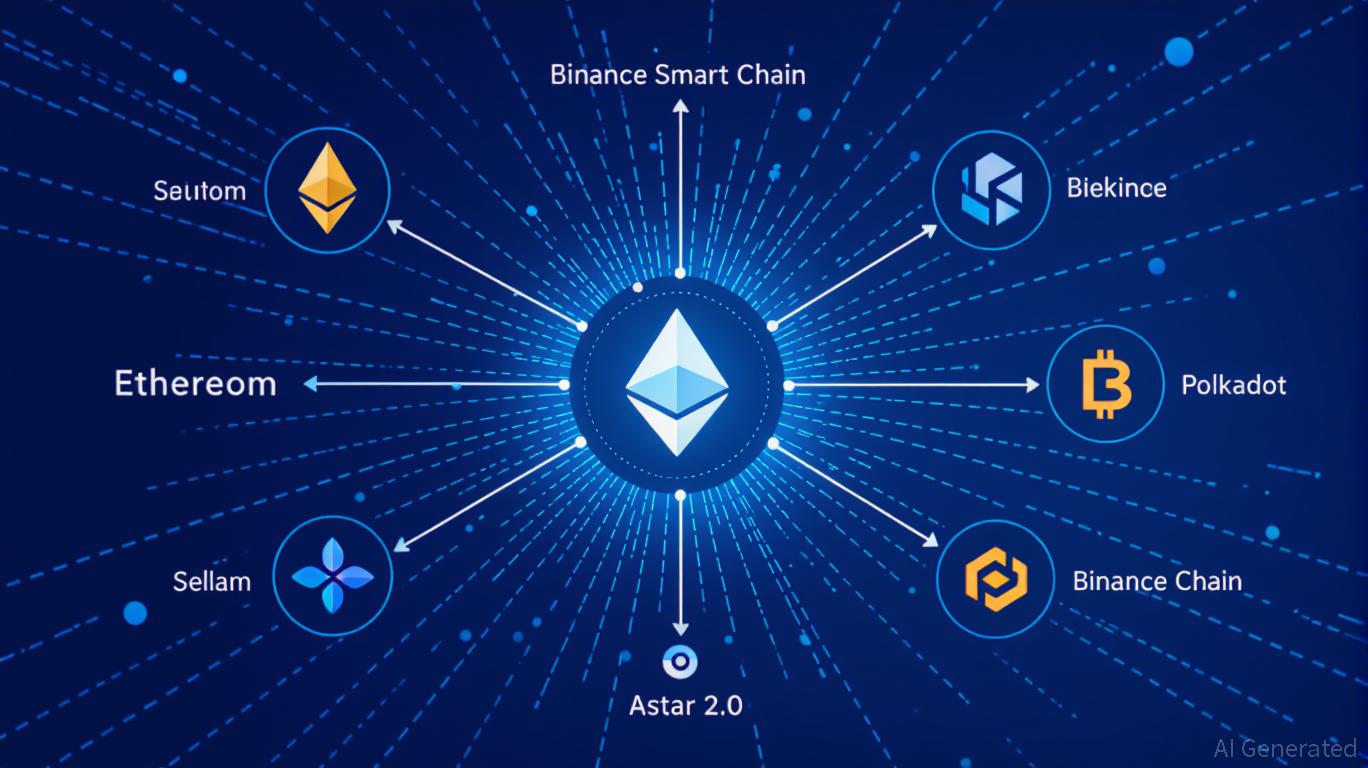As Technology Stocks Plunge Further, the Federal Reserve's Reputation in Handling Crises Is Put to the Test
- U.S. tech stocks face selloff as inflation fears and Fed policy uncertainty drive Nasdaq and S&P 500 declines, with "Magnificent Seven" valuations exceeding 35 P/E ratios. - Apple delays iPhone Air launch due to weak sales, exposing broader consumer demand challenges and compounding market concerns over tech overvaluation. - Monday.com's 20% premarket drop highlights risks as strong Q3 results fail to offset cautious guidance, mirroring sector-wide profit-taking pressures. - Fed's mixed signals on rate c
The recent downturn in the U.S. technology sector has intensified, as investors prepare for ongoing volatility amid inflation concerns and evolving expectations for Federal Reserve policy, sparking widespread anxiety. Over the past two weeks, the Nasdaq Composite has dropped 4.4%, marking its poorest showing since April, while the S&P 500 declined by 3%. Both indexes saw a modest recovery after
Apple's postponement of its second-generation iPhone Air, which was initially planned for release in 2026, has further unsettled investors. Reports indicate that the company halted development due to disappointing sales of the current version, prompting Foxconn and Luxshare to stop production lines

Political factors are also contributing to the instability.
Beyond the stock market, deeper risks are surfacing in U.S. dollar funding markets. Rising repo rates and the Federal Reserve's balance sheet reduction have widened the SOFR-IOER spread to its largest since 2020,
While corrections in the tech sector and inflationary trends are grabbing attention, analysts warn that the real challenge will be the Fed's ability to steer a delicate global financial system. "
Disclaimer: The content of this article solely reflects the author's opinion and does not represent the platform in any capacity. This article is not intended to serve as a reference for making investment decisions.
You may also like
Bitcoin News Update: CFTC's Broader Role in Crypto Regulation Ignites Discussion on Clearer Rules
- U.S. lawmakers propose expanding CFTC's crypto oversight via a bill reclassifying spot trading, diverging from SEC's enforcement approach. - Harvard University invests $443M in BlackRock's IBIT ETF, reflecting institutional confidence in crypto as a legitimate asset class. - DeFi projects like Mutuum Finance raise $18.7M in presales, leveraging regulatory momentum and transparent on-chain credit systems. - RockToken's infrastructure-backed crypto contracts attract long-term investors with structured yiel

DASH Aster DEX's Latest On-Chain Growth and What It Means for DeFi Liquidity
- DASH Aster DEX leads 2025 DeFi shift with hybrid AMM-CEX model and multi-chain support (BNB, Ethereum , Solana), boosting TVL to $1.399B and Q3 daily trading volumes of $27.7B. - Platform's 1,650% ASTER token price surge post-TGE attracted 330,000 new wallets, with 94% of BSC-USD volume ($2B/day) driving institutional adoption via Binance/YZi partnerships. - ASTER token mechanics enable 80% margin trading, 5-7% staking rewards, and governance rights, while annual 5-7% fee burns create scarcity and align

Astar 2.0: Leading a New Generation of DeFi and Cross-Chain Advancements
- Astar 2.0 introduces a zkEVM mainnet and cross-chain interoperability, slashing gas fees and enabling 150,000 TPS with 2025 scalability goals. - Strategic partnerships with Mazda, Japan Airlines, and Sony demonstrate blockchain's real-world applications in logistics, loyalty programs, and digital asset tokenization. - Q3 2025 data shows $2.38M DeFi TVL growth and 20% active wallet increase, alongside a $3.16M institutional ASTR token acquisition. - The platform aims to solidify its role as a foundational

Aster DEX Introduces New On-Ramp: Transforming Retail Participation in DeFi
- Aster DEX integrates institutional-grade custody and privacy tech (zero-knowledge proofs) to bridge retail-institutional DeFi gaps via BNB Chain partnerships. - TVL surged to $2.18B by late 2025 through yield-bearing stablecoins and hidden orders, attracting both retail and institutional liquidity. - Despite compliance gaps and wash trading concerns, Aster's Binance alignment and Coinbase listing signals growing institutional validation.
